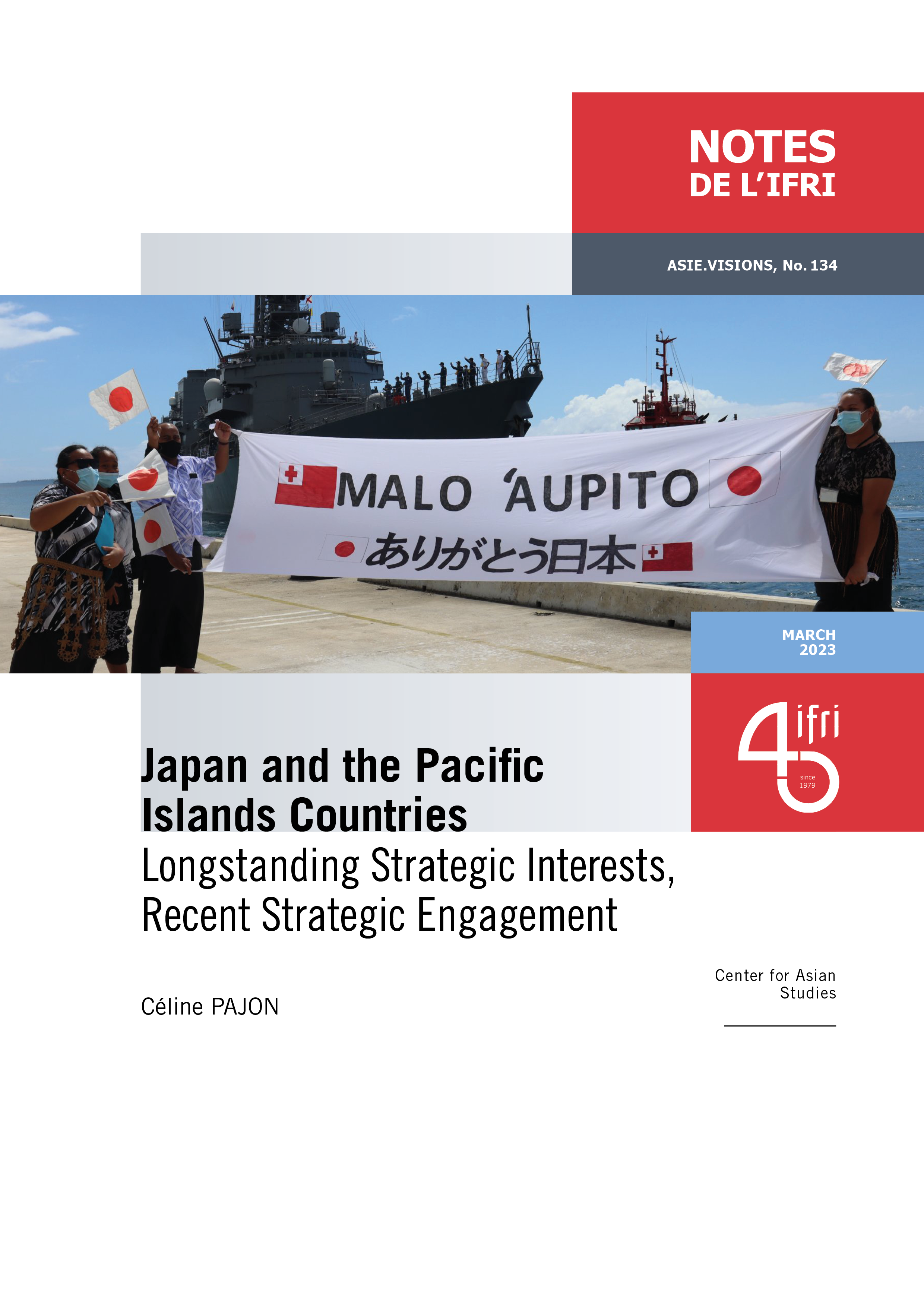Japan and the Pacific Islands Countries. Longstanding Strategic Interests, Recent Strategic Engagement

The wealth of these territories in fishery resources and raw materials, the crucial importance of the maritime routes, and the strategic geographical location of PICs in the context of Sino-American rivalry have been key factors behind Tokyo's expanding engagement.
Despite these strategic interests, the cooperation with the PICs in the postwar era up until the emergence of the Indo-Pacific narrative has been quite fragmented, reflecting the rather low priority given to the region, the multiplicity of the objectives pursued, and the diversity of engaged actors. Nevertheless, the Japan-Pacific Islands Leaders Meeting (PALM) process initiated in 1997 provided an innovative multilateral framework to coordinate with the Pacific Islands Forum (PIF) over economic cooperation, improve Japan’s communications and iron out tensions, starting with nuclear.
The incorporation of the PICs into Japan’s Free and Open Indo-Pacific (FOIP) vision cements their position in Tokyo’s efforts to preserve a rules-based international order and counterbalance China’s growing influence. Security issues of Asia have thus started to appear on the agenda of the PALM Summits. In addition, Japan has stepped up its cooperation with its closest allies and partners – the US and Australia – as part of the operationalization of a FOIP in Oceania. Finally, a major provider of development aid, Tokyo has also become a diplomatic and security partner for the Pacific Islands. Japan has stepped up naval diplomacy and defense dialogues in the region, in addition to being very active in maritime capacity-building, as well as humanitarian aid and disaster relief assistance.
Despite the rise of Japanese cooperation, which is now truly multidimensional and strategic, Tokyo's ability to influence the Pacific islands and in particular to counterbalance China remains to be seen. Indeed, the PICs feel little concerned by major geopolitical projects and are careful not to create enemies.
With the US and its other partners increasing their presence in the area, there is a strong impetus for Japan to reinvest in the Pacific. However, Tokyo has yet to develop a formal strategy or vision for the region. This could be announced at the next PALM summit in 2024, which will mark the 10th iteration of this meeting and could be a significant milestone.

Available in:
Regions and themes
ISBN / ISSN
Share
Download the full analysis
This page contains only a summary of our work. If you would like to have access to all the information from our research on the subject, you can download the full version in PDF format.
Japan and the Pacific Islands Countries. Longstanding Strategic Interests, Recent Strategic Engagement
Related centers and programs
Discover our other research centers and programsFind out more
Discover all our analysesJapan’s Takaichi Landslide: A New Face of Power
Prime Minister Sanae Takaichi has turned her exceptional popularity into a historic political victory. The snap elections of February 8 delivered an overwhelming majority for the Liberal Democratic Party (LDP), driven by strong support from young voters, drawn to her iconoclastic and dynamic image, and from conservative voters reassured by her vision of national assertiveness. This popularity lays the foundation for an ambitious strategy on both the domestic and international fronts.
The U.S. Policy Toward Taiwan Beyond Donald Trump: Mapping the American Stakeholders of U.S.-Taiwan Relations
Donald Trump’s return to the White House reintroduced acute uncertainty into the security commitment of the United States (U.S.) to Taiwan. Unlike President Joe Biden, who repeatedly stated the determination to defend Taiwan, President Trump refrains from commenting on the hypothetical U.S. response in the context of a cross-Strait crisis.

China’s Strategy Toward Pacific Island countries: Countering Taiwan and Western Influence
Over the past decade, China has deployed a diplomatic strategy toward the Pacific Island Countries (PICs). This strategy pursues two main objectives: countering Taiwan's diplomatic influence in the region and countering the influence of liberal democracies in what Beijing refers to as the "Global South."

Opening up the G7 to South Korea to Address Contemporary Global Challenges
The G7’s global influence has diminished as powers like China reshape international governance through initiatives such as BRICS and the Shanghai Cooperation Organisation (SCO). With the G7 now representing just 10 per cent of the world’s population and 28 per cent of global GDP, its relevance is increasingly questioned.










